Background
Introduced in Budget 2023 and effective from 1st September 2022 to 28th February 2023 to support businesses who have experience significant increases in their electricity and / or gas bills
Who can apply?
Businesses that have;
1) Case I trade or Case II profession (company, self-employed individual, partnerships, charities that has trading activities, vocations such as Montessori schools, pre-schools and Early Childcare and Education services approved sporting bodies) AND
2) Businesses that have experienced a significant increase of 50% or more in their electricity and / or gas average unit price AND
3) Businesses that are tax compliant (tax clearance requirement)
How much can be claimed?
- Businesses can claim 40% of the increase in electricity or gas bills between the “claim period” and the “reference period”
- Capped at €10,000 per month
- The monthly cap of €10,000 may be increased to a maximum of €30,000 for businesses that operate from multiple locations, subject to certain conditions
Eligible energy use
- The eligible costs must be incurred wholly and exclusively (S.81 TCA 1997) for the purposes of the trade or profession
- This means that the eligible costs must be directly related to the running of the business
- Any non-business use must be specifically excluded from the eligible costs for the claim
- Where the business is operated from a principal private residence (PPR), then a percentage of the bill needs to be excluded to account for the private element of the electricity and / or gas usage
How can I claim and what is required?
- Register for TBESS through ROS
- Up to date tax clearance certificate
- Make a declaration on ROS that the business satisfies the conditions to make a claim
- MPRN numbers are required for the electricity and / or gas accounts
- If the business is operated from a principal private residence (PPR), then the percentage of the bill used specifically for business purposes needs to be submitted
- Invoices are required to calculate the average unit price i.e., if making a claim for September 2022 then the business would require September 2021 and September 2022 invoices
- TBESS is operated on a self-assessment basis
How is the claim treated for tax purposes?
- The amount received will be liable to tax
- The amount will be treated as a credit against the total of the electricity and / or gas expenses for the financial year
What periods can I make a claim?
- The increase in electricity and / or gas bills must be between the ‘claim period’ and the ‘reference period’
- A claim period is a calendar month from September 2022 to February 2023
- A reference period is the corresponding calendar month in the previous year
- For example, September 2021 is the reference period for the September 2022 claim period
- The following items should not be included in the eligible costs:
- The VAT on the bills – i.e., the claim is calculated based on the VAT exclusive amount
- Any arrears or prepayments on the gas or electricity accounts
- The time limit for making a claim in relation to an electricity or gas bill is 4 months from the end of the claim period to which the electricity or gas bill relates. e., For September 2022 claims the deadline for making a claim is 31st January 2023
How long will the TBESS scheme last?
- The TBESS scheme is currently in place from September 2022 to February 2023
What if I have no “reference period” as my business is a new business?
- A business may have been newly established or may have relocated to a new premises and so may not have comparative bills
- If a business doesn’t have an electricity bill and / or gas bill for the reference period, they can still apply for TBESS support
Publication
- Revenue will publish names and addresses of businesses who availed of the Temporary Business Energy Support Scheme along with publication of the amount claimed
Further information:
Temporary Business Energy Support Scheme (TBESS) (revenue.ie)
Webinar https://www.revenue.ie/en/starting-a-business/tbess/webinar.aspx
Contact us today
Legal Disclaimer: This blog is intended to describe the subject in general terms. As such, it does not attempt to cover every issue which may arise in relation to the subject. It does not purport to be a legal interpretation of the statutory provisions and consequently, responsibility cannot be accepted for any liability incurred or loss suffered as a result of relying on any matter published herein





